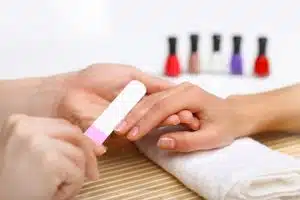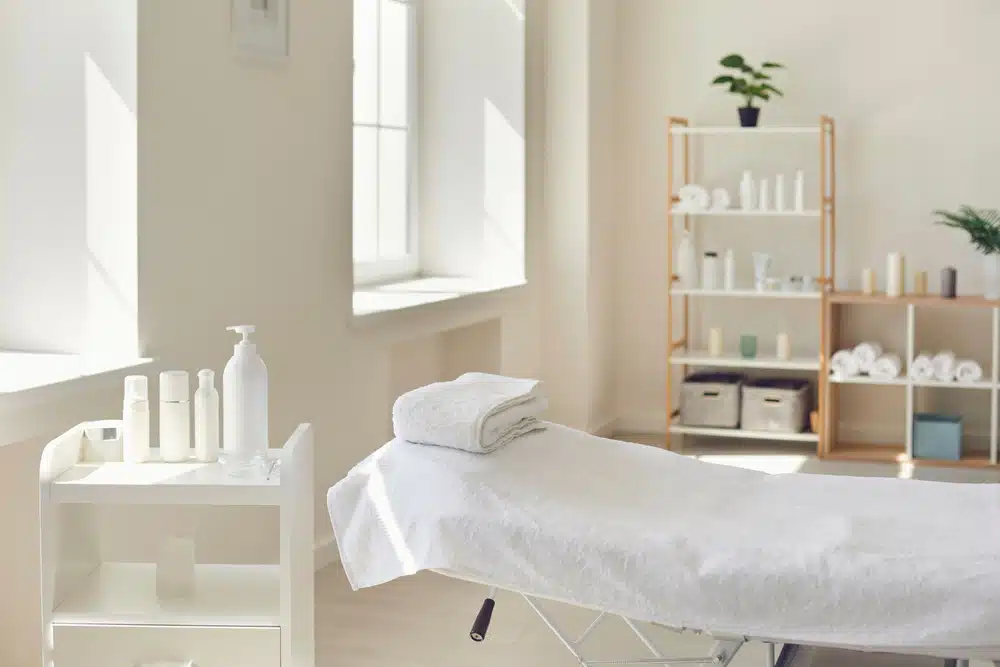
For instance, ear piercing products are regulated so that nickel content is strictly limited. Providing ear piercing services requires you to ensure that all the items you use, or sell, meet the appropriate standards.
These include health and safety regulations, as well as licensing requirements. failure to comply with these regulations can result in hefty fines, or even the closure of the salon. The most important thing for any beauty salon owner is to make sure that they are fully compliant with all relevant laws and regulations. This includes ensuring that all staff are properly trained and that the salon is regularly inspected by the relevant authorities. By taking these steps, beauty salon owners can help to protect their business and avoid any legal problems.
What licences does a beauty salon need?
The licences needed for a beauty salon are issued by your local authority’s environmental health department may require you to register as a beauty salon proprietor, depending on the treatments you offer. You do not have to pay to do this. Electrolysis and ear-piercing businesses must be registered.
Laser and intense pulsed light (IPL) treatments do not require registration if you are based in England. However, you are required to register with the Regulation and Quality Improvement Authority (RQIA) in Northern Ireland. Healthcare Inspectorate Wales (HIW) is the registering authority in Wales. The Care Inspectorate website provides more information about the National Care Standards, which apply to lasers and intense pulsed light systems used for cosmetic purposes in Scotland.
Other licences
Music licences (TheMusicLicence) from PPL PRS Ltd are required if you play background music in the salon. The PPL PRS website allows you to pay an annual fee online.
The alcohol licenses needed in England, Wales and Scotland are both premises licenses and personal licences if you provide your customers with complimentary alcoholic drinks. Contact your local authority for more information about these requirements.
Sunbeds
There is a ban on the use of commercial sunbeds by youth under 18 throughout the UK. Unsupervised tanning salons are also prohibited in Scotland, Northern Ireland, and Wales.
Sunbed tubes can emit up to 0.3 watts per square metre of UV light. To ensure that your sunbed tubes are legal, trading standards officers may inspect your premises.
Waste electrical items such as spent sunbed tubes must be disposed of according to regulations. A waste carrier authorised to dispose of these must be used.
Fish pedicures
To ensure the welfare of the fish, you must comply with regulations regarding fish pedicures. The properdisposal of dead fish is imperative.
Cosmetic Product Enforcement Regulations
A safety assessment is required for all cosmetic products before they can be marketed under these regulations. More information is available on the website of the Cosmetic Toiletry and Perfumery Association (CTPA).
Workplace smoking ban
Public places and workplaces are not permitted to smoke. It is necessary to display ‘No Smoking’ signs in appropriate places. If you would like to know how the ban affects you in your local area, contact your local authority. Visit the HSE website for more information.
Health & safety, fire
In order to ensure the safety of your employees, you should follow the following health and safety rules:
- Use of potentially hazardous substances
- Safe use of work equipment
- Proper maintenance and testing of work equipment
Legislation on fire safety and health and safety at work must be followed.
Employment legislation
The employment legislation must be followed by anyone who employs staff. Legislation in the following areas is important:
- Recruitment and employment contracts
- Pay and pensions
- Working time: hours, leave, flexible working
- Employment policies
- Sickness and sick pay
- Maternity, paternity and adoption
- Discrimination
- Managing home workers, remote workers, lone workers
- Discipline and grievance
- Dismissals and redundancies
- Employment tribunals
Insurance for a beauty salon
A beauty business owner needs insurance coverage when they start up. Explain your business’s operations to an insurer. Afterwards, they can recommend what coverage you should have, including:
- Premises, premises contents and stock
- Employers liability (if you employ staff)
- Business interruption
- Public liability, including therapy/treatment risk (this is particularly important)
- Motor insurance (for business vehicles)
As a member of The British Association of Beauty Therapy & Cosmetology (BABTAC), you will have access to a variety of insurance packages specifically tailored to your needs, whether you work in a retail salon or of a home-based or mobile nature. For more information, please visit the BABTAC website.
Conclusion
Beauty salon owners need to be aware that they have a duty of care to their customers and staff, while using products and equipment that is needed thought their duties or receiving a treatment as a customer. The owner need to ensure that the equipment is tested and the operator is trained in the use of the equipment. The correct Insurance needs to held both employers and employees as well as liability insurance to ensure any future legal issues for the beauty salon or therapist is insured against.
Lee Jones is a seasoned Business Finance Specialist with over two decades of invaluable experience in the financial sector. With a keen eye for market trends and a passion for helping businesses thrive, Lee has become a trusted advisor to countless organizations seeking to navigate the complexities of finance.


